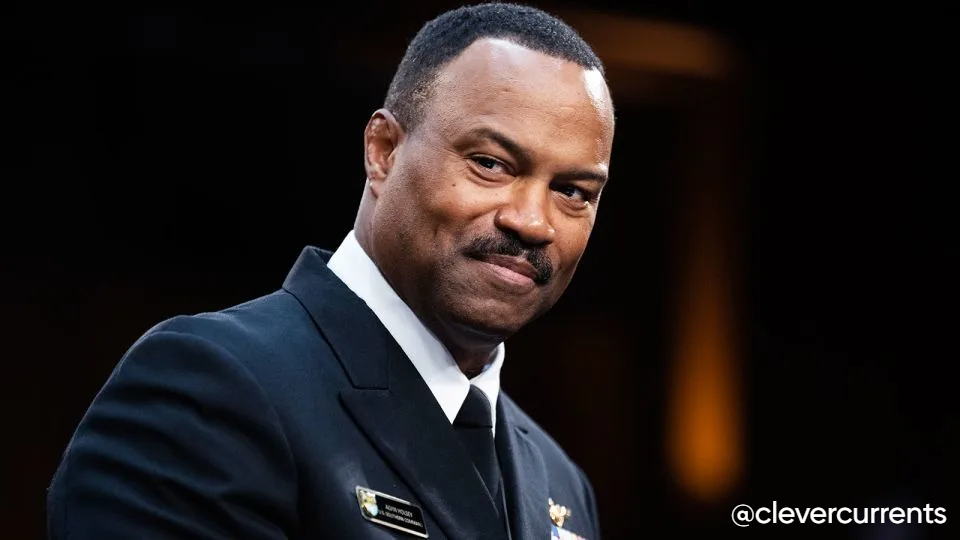In a startling escalation of U.S. counter‑narcotics operations, American forces carried out a new strike on a suspected drug vessel in the Caribbean on October 16, 2025. According to U.S. officials, survivors were found among the boat’s crew — the first time this has been publicly reported in the series of recent maritime strikes.
Simultaneously, Admiral Alvin Holsey, head of U.S. Southern Command (which oversees U.S. military operations in Latin America and the Caribbean), announced his retirement, effective December 12, 2025. His early departure—less than a year into a normally three‑year posting—has drawn speculation about internal disagreements over these missions.
These parallel developments point to an intensifying U.S. campaign in the Caribbean, fraught with legal, strategic, and geopolitical implications.
Background: U.S. Military Campaign in the Caribbean
Why the Escalation
-
Since late August 2025, the U.S. has rapidly expanded its naval and air presence in the southern Caribbean, deploying warships, F‑35 jets, a nuclear submarine, and thousands of troops.
-
The Trump administration has classified certain Venezuelan-linked drug traffickers as “narco‑terrorists” or unlawful combatants, justifying the use of military force rather than relying purely on interdiction, seizure, or cooperation with law enforcement.
-
Prior to this latest strike, U.S. forces had carried out at least five lethal strikes on small vessels in the Caribbean since September, reportedly killing over 27 people, often with no survivors publicly acknowledged.
-
The objective appears dual: to disrupt drug trafficking routes and to squeeze the financial resources of organizations that allegedly support the Venezuelan regime or local criminal networks.
The New Strike & Survivors
-
The October 16 strike is uniquely notable because, for the first time, there were survivors among the crew — raising questions about what happens next: Will they be detained, prosecuted, interrogated, or released?
-
U.S. officials have not clarified whether the strike was designed to allow survivors or whether any aid was rendered to them.
-
The strike has not been publicly confirmed by the Pentagon or by President Trump (as of initial reports).
Why the Admiral’s Resignation Matters
Admiral Holsey’s abrupt decision to retire has stirred intense speculation, because it coincides exactly with this spike in aggressive maritime actions.
-
Internal dissent or disagreement?
Some reports suggest that Holsey had expressed reservations about the scope, legality, or oversight of these missions.
Others hint at friction with Defense Secretary Pete Hegseth (who now refers to the Department of Defense as the “Department of War”) over strategic direction. -
Symbolic shift in command culture
Holsey’s departure could signal a reorientation of command structures or strategic priorities, especially as the U.S. pushes for more direct military involvement in counter‑narcotics operations. -
Question of accountability
If a senior officer is stepping down amid controversy, it may reflect tensions over civilian oversight, legal constraints, and the limits of executive power in conducting operations abroad. -
Impact on continuity and morale
A sudden leadership change in the middle of an intensifying campaign may affect coordination, interagency trust, and operational momentum.
Legal, Ethical & Geopolitical Challenges
Legality Under International Law
-
Use of lethal force vs. law enforcement: Traditional approaches to countering drug smuggling rely on maritime interdiction, arrests, and judicial processes. Using military strikes raises questions: do these suspects pose an imminent threat? Are they combatants in a declared conflict?
-
Sovereignty and jurisdiction: Many of these actions occur in international waters, but they touch the territorial integrity of coastal states (e.g., Venezuela). Do these strikes violate maritime law or the sovereignty of nations?
-
Due process & extrajudicial killings: Critics argue that killing individuals without trial, especially when evidence is not publicly shared, smacks of extrajudicial execution.
-
Some legal scholars question whether the war on drugs constitutes an armed conflict that can justify targeting individuals as combatants.
Political and Diplomatic Fallout
-
Venezuela’s reaction: The Maduro government and its allies have condemned these strikes as acts of aggression and calls for regime change.
-
Regional partners and neighbors: Countries like Trinidad & Tobago are alarmed, especially when locals or fishermen are inadvertently affected.
-
Congressional oversight in U.S.: There is growing pushback in the U.S. from lawmakers demanding transparency, legal justification, and restraint in the use of military force in drug operations.
Strategic Risks
-
Escalation and blowback: What happens if a strike misidentifies a vessel or civilian lives are lost? The diplomatic cost could be high.
-
Precedent: If such strikes become normalized, it may broaden U.S. use of military force under the banner of counter‑drug operations — a slippery slope.
-
Resource misalignment: Critics argue that large naval hardware (destroyers, jets, submarines) may not be the right tool for policing drug routes, especially when much of the drug flow is land‑based (e.g. fentanyl from Mexico).
What to Watch Going Forward
-
Fate of survivors from the Oct 16 strike — whether they will be detained, charged, released, or repatriated.
-
Holsey’s successor and whether the new command will be more aggressive or more constrained.
-
Further strikes — will they escalate in frequency or scale (e.g. into coastal zones or involving land strikes)?
-
Congressional and judicial responses — lawsuits? oversight hearings? pushback over war powers?
-
Regional backlash — protests, international investigations, UN involvement.

